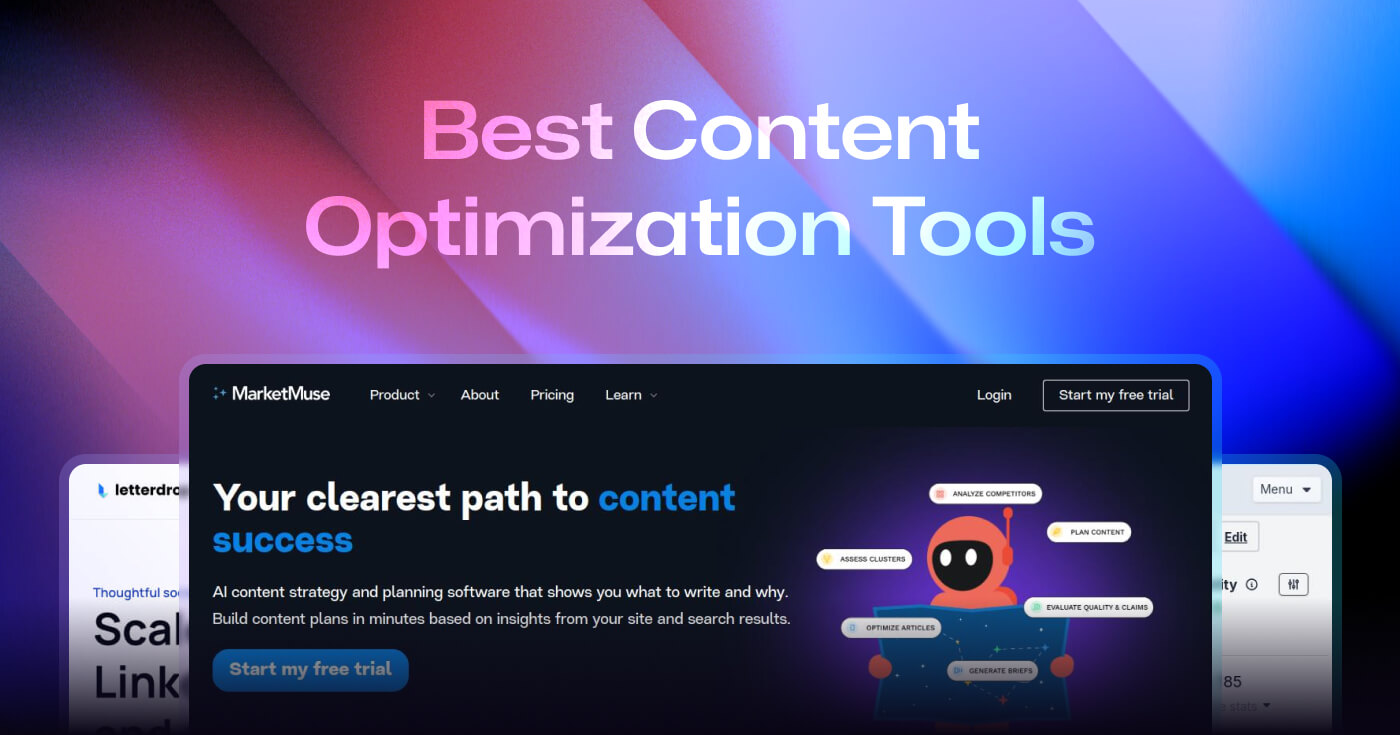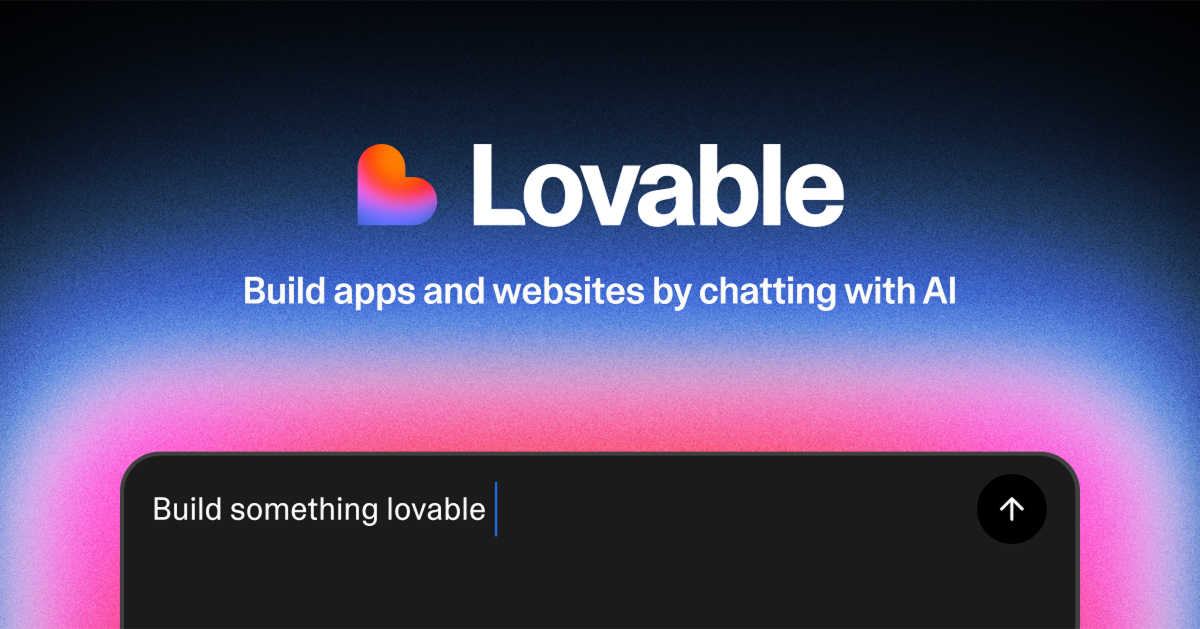In the quest for digital visibility, the role of content optimization tools has become crucial.
These tools empower marketers to refine their content strategies, ensuring that they reach their target audience effectively.
Over 60% of marketers report using content optimization tools to boost their SEO rankings, while 75% of high-traffic sites implement these strategies to stay competitive.
With the explosion of AI-driven solutions, it’s essential to stay informed about the leading options available in 2024.
In this guide, you’ll explore the top 8 content optimization tools available in 2024.
Key Takeaways
- Content optimization tools are essential for improving SEO and driving organic traffic.
- AI technology is increasingly important in optimizing content, enhancing speed and accuracy.
- Adopting the right tool can significantly improve content quality and user engagement.
Top 8 Picks for Content Optimization Tools
- Clearscope – Best for creating data-driven content briefs.
- MarketMuse – Best for enterprise-level content planning and optimization.
- Dashword – Best for real-time content scoring and insights.
- Letterdrop – Best for B2B marketers looking for an all-in-one platform.
- SE Ranking – Best for a comprehensive SEO platform with content optimization features.
- SEO PowerSuite – Best for offline content creation and SEO management.
- Hemingway Editor – Best for enhancing readability and clarity.
- Frase – Best for AI-assisted content creation and optimization.
How to Evaluate Content Optimization Tools
The evaluation process for content optimization tools focused on these key criteria:
- Usability: Evaluating user interfaces and ease of use for both novice and experienced users.
- Functionality: Assessing the full range of features available and their role in content optimization.
- Integrations: Identifying compatibility with other tools and platforms that users commonly use.
- Pricing Models: Considering various pricing tiers and their alignment with feature sets.
- Customer Support: Evaluating the support services provided by each tool to assist users.
The methodology involved rigorous testing, data analysis, and expert consultations to ensure comprehensive and reliable evaluations.
Content Optimization Tools Comparison Table
| Software | Best For | Key Features | Pricing | Free Plan | Platforms Available |
|---|---|---|---|---|---|
| Clearscope | Content briefs and SEO | Keyword insights, readability scoring | $189/month | No | Web |
| MarketMuse | Enterprise content strategy | Content gap analysis, AI suggestions | $149/month | No | Web |
| Dashword | Live content optimization | Real-time scores, auto-generated briefs | $99/month | Yes | Web |
| Letterdrop | All-in-one B2B marketing tool | Content tips, CMS integration | $995/month | No | Web |
| SE Ranking | Comprehensive SEO | Content brief generation, readability scoring | $52/month | Yes | Web |
| SEO PowerSuite | Standalone SEO tool | Content audits, optimization tools | From $125/year | Yes | Windows, Mac |
| Hemingway Editor | Readability improvement | Syntax checking, readability grades | Free/One-time desktop fee | Yes | Web, Desktop |
| Frase | AI content creation | SERP analysis, automated briefs | From $15/month | Yes | Web |
1. Clearscope
Best for creating data-driven content briefs
Clearscope is renowned for producing highly relevant content by utilizing advanced natural language processing (NLP) models to analyze search results.
It offers keyword recommendations along with a unique scoring system that assesses content quality based on readability and appropriate word count.
Moreover, its seamless integrations with platforms like Google Docs and WordPress enhance the user experience.
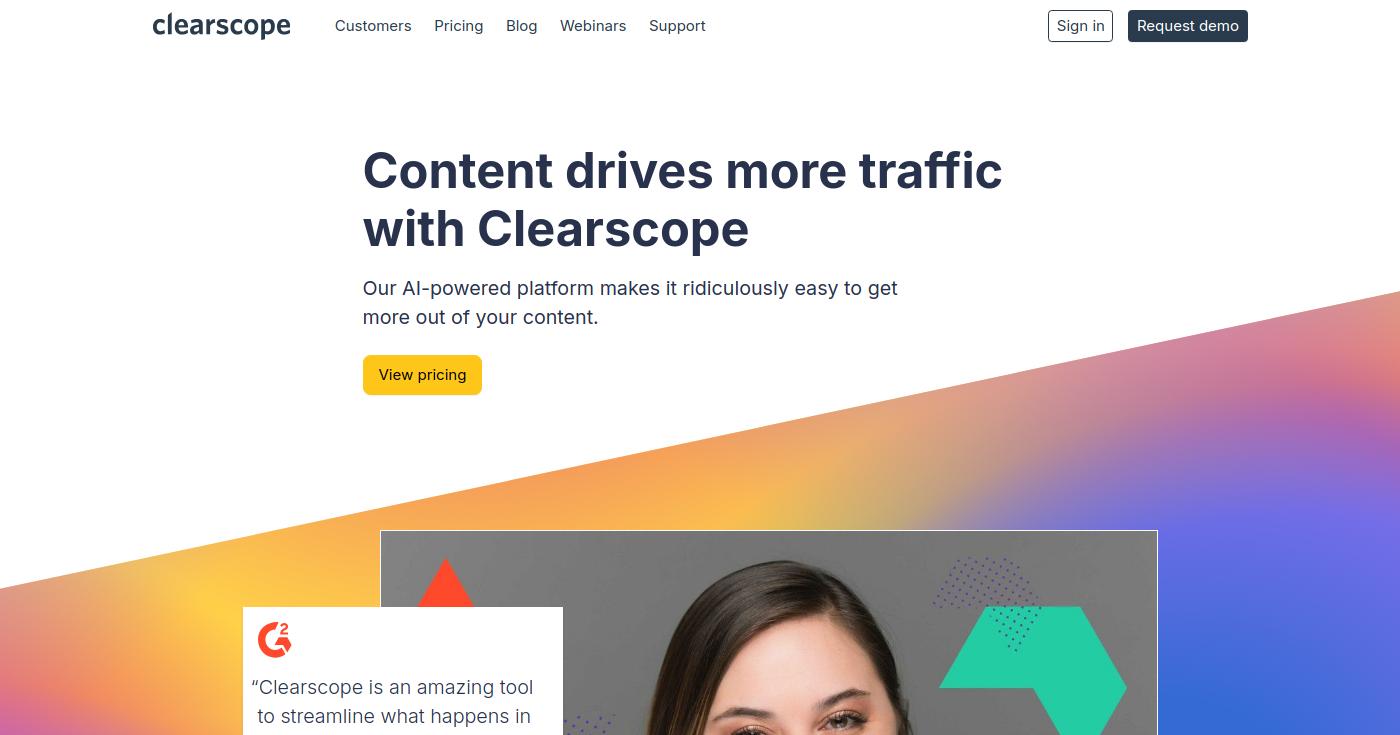
Pros
- Comprehensive keyword insights.
- User-friendly interface suitable for all skill levels.
- Real-time content quality assessment.
Cons
- Higher price point compared to basic tools.
- Limited features for smaller teams.
Key Features
- Keyword research: Provides valuable recommendations based on current search landscapes.
- Scoring system: Helps users understand content effectiveness.
- Integrations: Works smoothly with popular writing platforms.
Pricing
Clearscope starts at $189/month, with custom pricing available for larger teams. You can explore this tool further on their pricing page.
2. MarketMuse
Best for enterprise-level content planning and optimization
MarketMuse is tailored to enterprises that require a topic-driven content strategy.
The platform’s research tools help identify content gaps and optimize existing material using AI insights, promoting a structured writing approach.
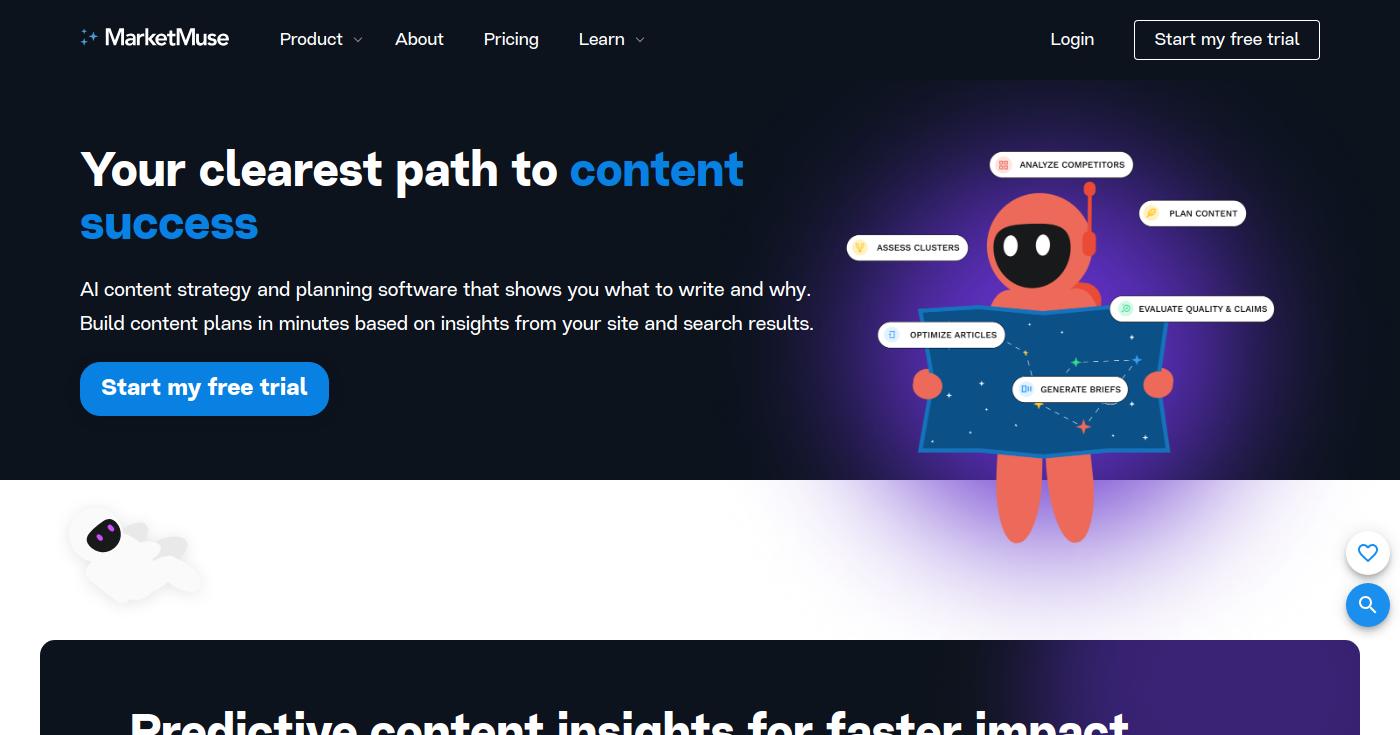
Pros
- In-depth content analysis.
- Excellent for comprehensive competitor research.
- AI-powered insights enhance content quality.
Cons
- Cost may be prohibitive for smaller businesses.
- Requires training to fully utilize features.
Key Features
- Content gap analysis: Identifies opportunities for new content creation.
- Topic modeling: Helps create a focused content strategy.
- AI integrations: Automates content suggestions to maximize efficiency.
Pricing
MarketMuse starts at $149/month for the Standard plan. For further details, visit their pricing page.
3. Dashword
Best for real-time content scoring and insights
Dashword simplifies the process of creating content by providing live optimization scores and content briefs derived from competitor analysis.
Its integration with Google Docs further allows writers to optimize their work as they draft.
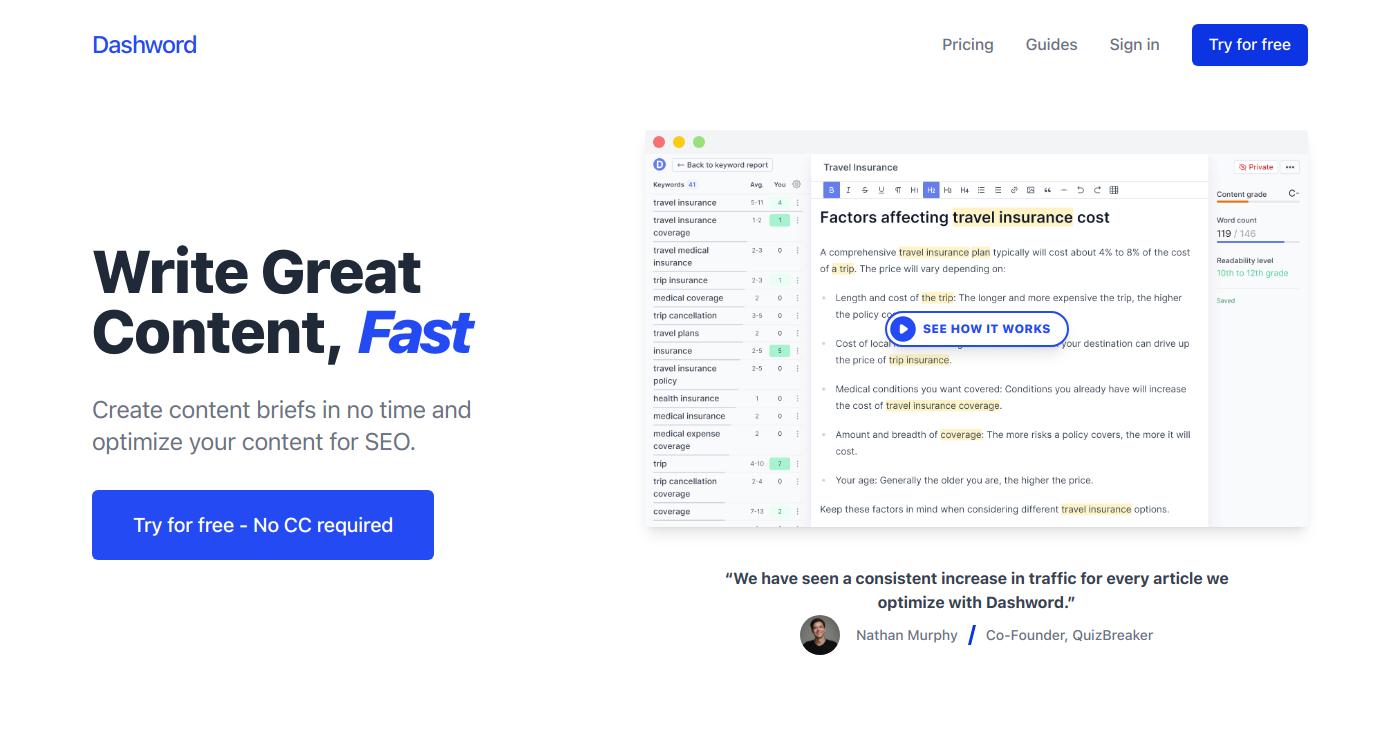
Pros
- Offers immediate feedback on content scores.
- Competitor analysis provides valuable insights.
- User-friendly Google Docs integration.
Cons
- Limited features compared to more comprehensive tools.
- Requires internet connectivity for full functionality.
Key Features
- Real-time scoring: Updates content scores immediately as you write.
- Brief generation: Automatically compiles relevant insights from competitors.
- Integration: Seamless use within Google Docs enhances workflow.
Pricing
Dashword’s subscription starts at $99/month, with a free trial option available. Check their pricing page for more information.
4. Letterdrop
Best for B2B marketers looking for an all-in-one platform
Letterdrop is a comprehensive platform designed specifically for B2B marketers, featuring a headless CMS that optimizes content delivery across various channels.
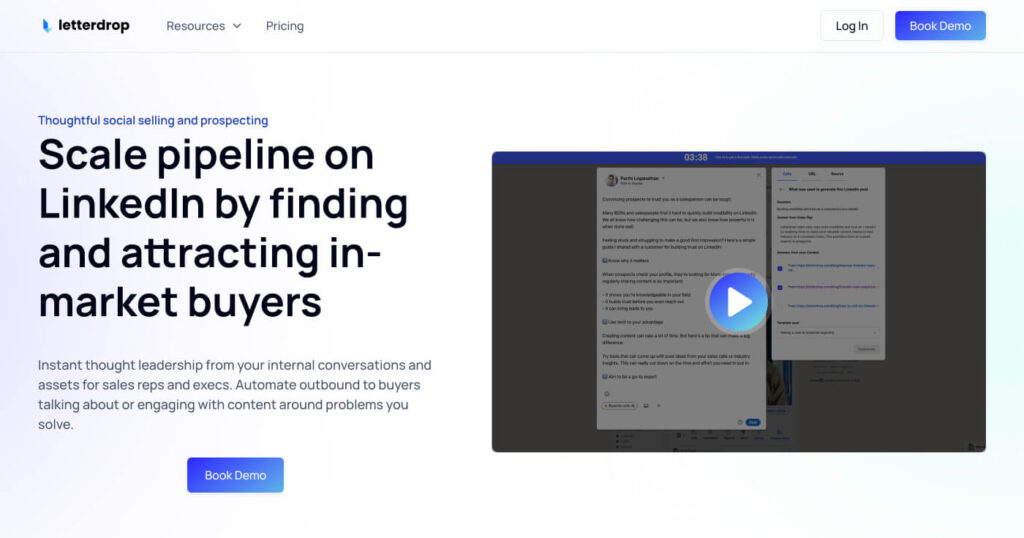
Pros
- Integrates with analytics tools for data-driven decisions.
- Provides content format and engagement type recommendations.
- Detailed SEO analysis enhances content strategy.
Cons
- Higher entry point due to the $995/month fee.
- May lack features for smaller marketing teams.
Key Features
- CMS integration: Manage all content from one platform.
- Engagement tips: Insights on improving user engagement.
- Technical SEO: Diagnoses content for SEO best practices.
Pricing
Starting at $995/month, Letterdrop is tailored for comprehensive B2B marketing needs. Visit their pricing page for more details.
5. SE Ranking
Best for a comprehensive SEO platform with content optimization features
SE Ranking offers a holistic approach to SEO, combining content optimization features with strong analytical tools.
This makes it suitable for diverse marketing needs.
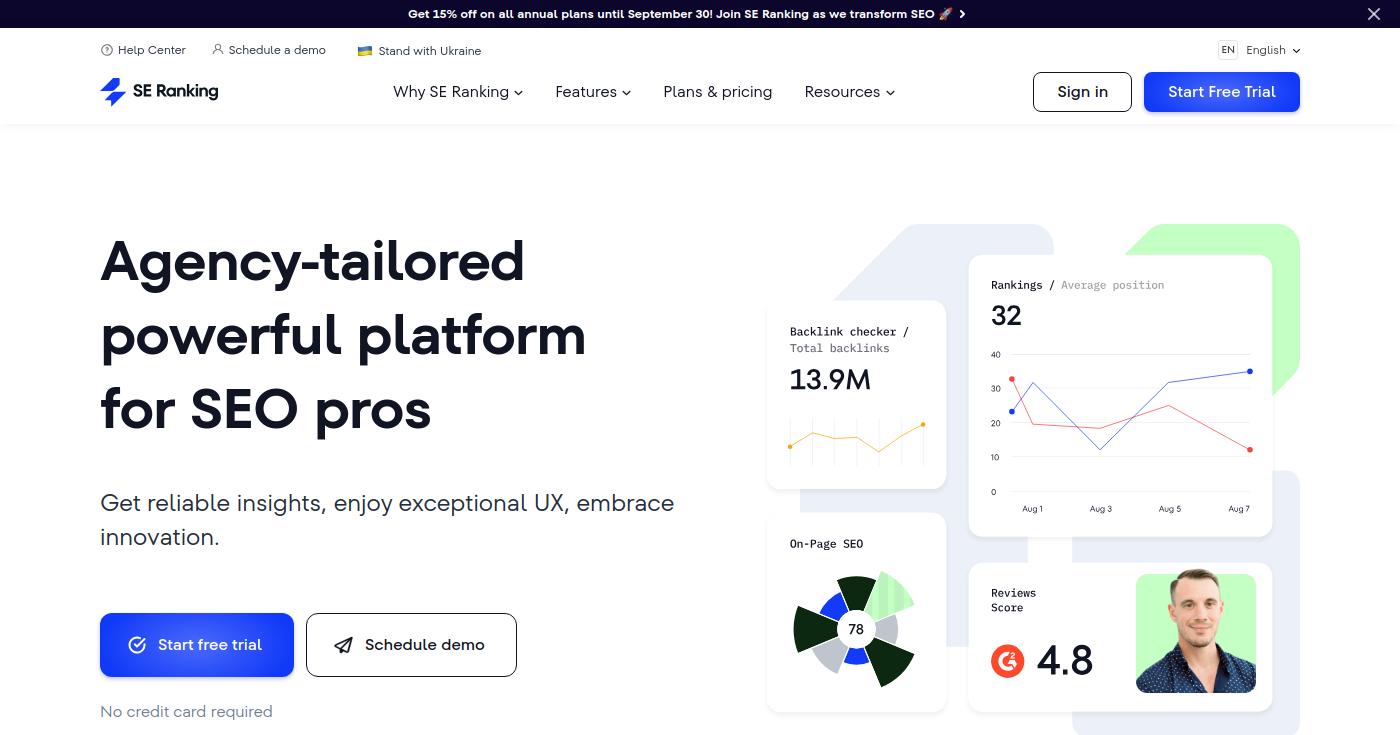
Pros
- Affordable entry point at $52/month.
- Extensive integration capabilities.
- Good customer support services.
Cons
- User interface can be overwhelming for beginners.
- Some features are not as robust as specialized tools.
Key Features
- Content briefs: Generates actionable insights for content creation.
- Quality scoring: Analyzes content’s readability and grammar.
- SEO tools: Comprehensive tools for overall web optimization.
Pricing
SE Ranking starts at $52/month, with a free plan available. More details on their pricing page can be found here.
6. SEO PowerSuite
Best for offline content creation and SEO management
SEO PowerSuite is perfect for marketers who prefer local software that integrates various SEO features along with content optimization capabilities.
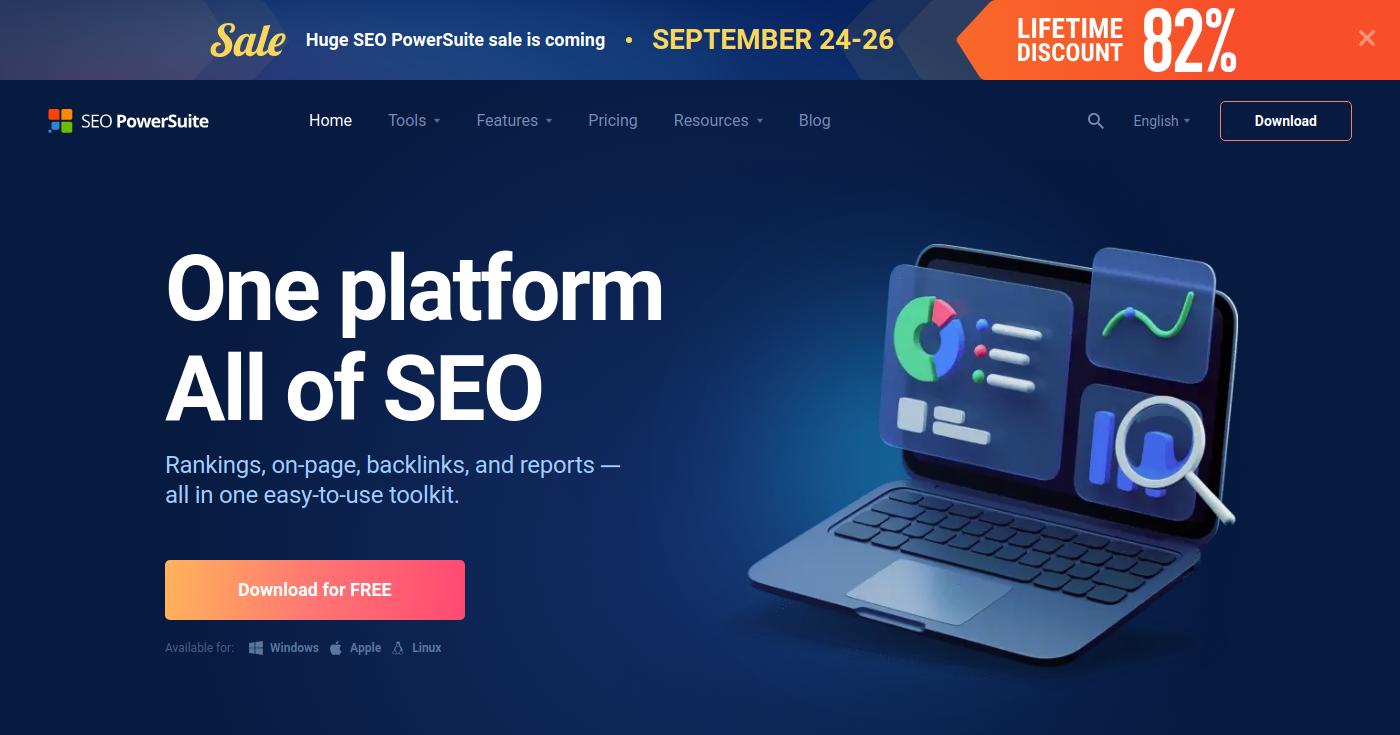
Pros
- Excellent for comprehensive SEO tools.
- Local installation allows for offline use.
- Free limited plan available.
Cons
- Requires some technical know-how for effective use.
- User interface can feel dated compared to online tools.
Key Features
- Content audits: Comprehensive assessments that reveal SEO opportunities.
- Local project saving: Save and manage SEO projects locally.
- Versatile toolset: Provides various SEO management features.
Pricing
SEO PowerSuite offers a free limited plan, with premium options starting at $125/year. More details can be found on their pricing page.
7. Hemingway Editor
Best for enhancing readability and clarity
Hemingway Editor is an essential tool for any writer looking to improve the readability of their content, highlighting complex sentences and passive voice.
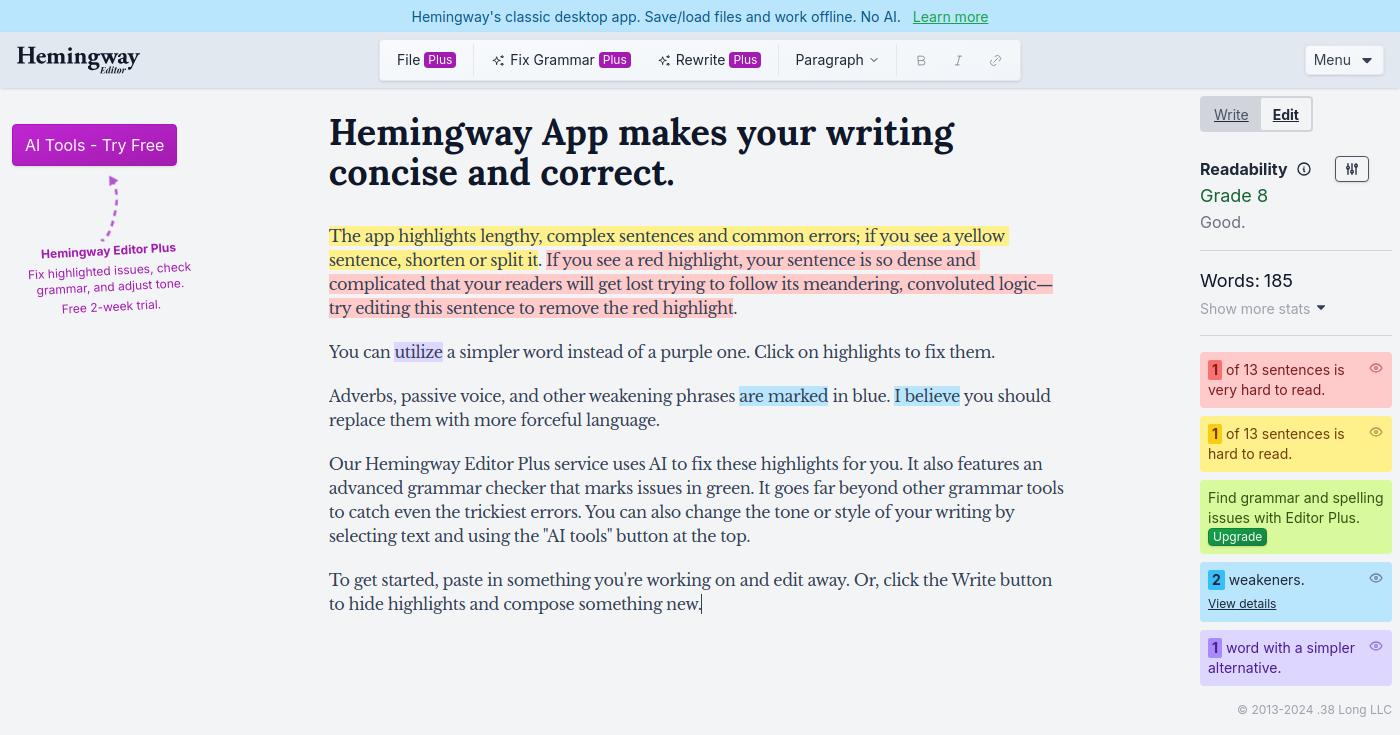
Pros
- The free online version offers strong utility.
- Simple interface focusing on text clarity.
- Provides actionable feedback on readability.
Cons
- Limited to readability—no SEO features.
- Desktop version requires a one-time purchase.
Key Features
- Syntax checking: Identifies problematic phrases and offers vocabulary enhancements.
- Readability grades: Easily gauge content quality through grades.
Pricing
The online version is free, while a one-time fee for the desktop version applies. More details can be found here.
8. Frase
Best for AI-assisted content creation and optimization
Frase stands out for its AI capabilities, allowing users to generate content briefs and automate writing aligned with search engine results pages (SERP).
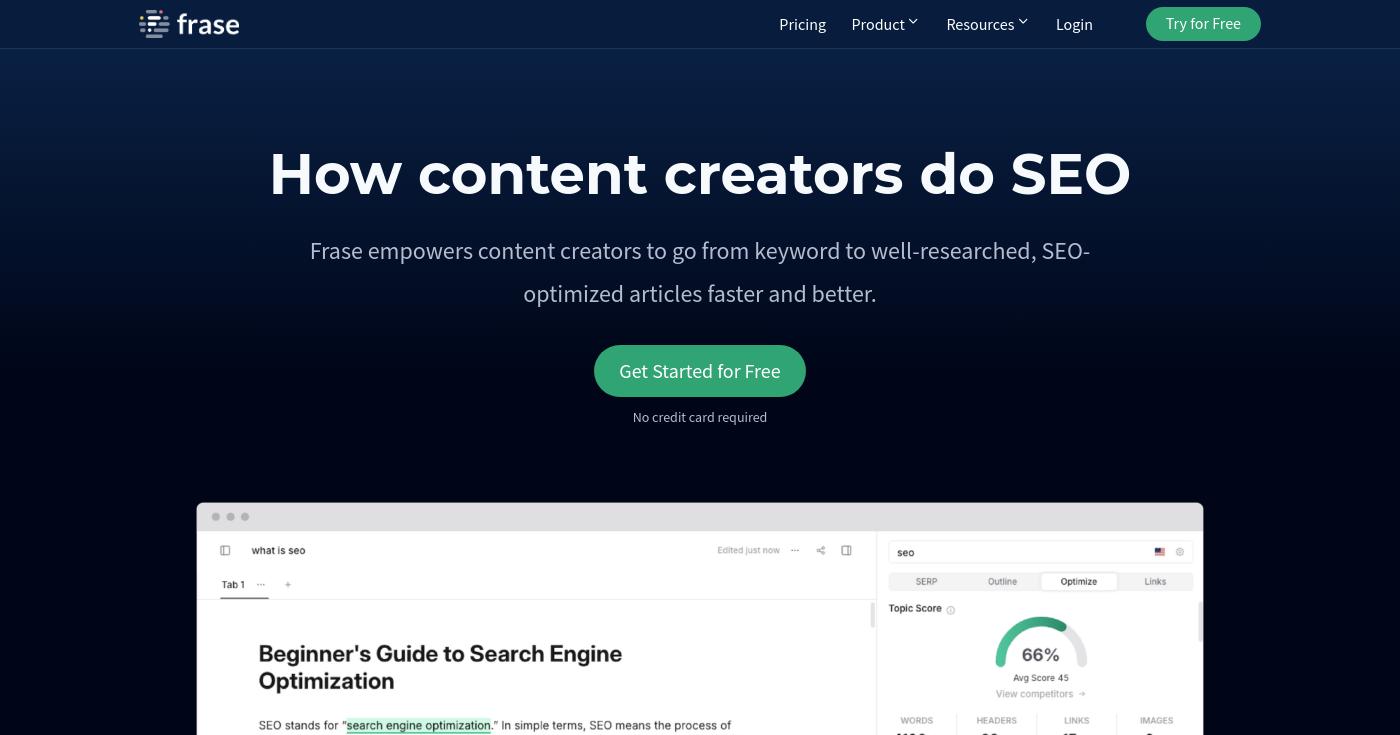
Pros
- Quick content creation aligned with search intent.
- Excellent for writers who need to optimize based on competitive content.
- Reasonably priced starter plan.
Cons
- Limited features in the basic plan.
- Some users may find AI suggestions lacking personalized nuances.
Key Features
- SERP analysis: Provides insightful data to optimize content further.
- Automated briefs: Quickly generate outlines based on AI input.
Pricing
Frase starts at $15/month. Visit their pricing page for more information.
How to Choose the Right Content Optimization Tools for Your Needs
Selecting the ideal content optimization tools depends on your specific requirements and use case.
Consider these crucial factors:
- Usability: Evaluate whether the tool is user-friendly for your team’s skill level.
- Functionality: Consider if the features align with your content strategy needs.
- Integrations: Look for compatibility with existing software in your workflow.
- Budget: Assess how pricing fits into your overall marketing budget.
Emerging Trends in Content Optimization Tools
- The importance of AI within content optimization tools continues to rise.
- The increasing emphasis on content freshness means that regular audits and updates will play a critical role in maintaining relevancy and visibility for brands in search results.
Conclusion
Selecting the right content optimization tools is vital for enhancing your content’s visibility, relevance, and performance in search results.
Each tool listed here has unique features catering to different user needs, making it essential to evaluate your specific requirements carefully.
Encourage your team to explore these tools and assess how they can elevate your content strategies in 2024 and beyond.
Frequently Asked Questions about Content Optimization Tools
What are content optimization tools?
Content optimization tools are software applications designed to enhance the quality and performance of digital content, focusing on factors like SEO, readability, and engagement.
How do I know which tool is right for me?
Consider factors such as usability, features necessary for your specific goals, your budget, and how well the tool integrates with your current workflow.
What is the average cost of content optimization tools?
Costs can vary widely, with some tools offering free options, while others start around $34/month and can go up to several hundred dollars.
Can I use multiple content optimization tools?
Yes, many marketers effectively combine multiple tools to leverage the strengths of each, improving their content strategies comprehensively.
What trends should I watch in content optimization software?
Keeping an eye on AI-driven features, content freshness audits, and integrated analytics will help you stay ahead in content creation and optimization strategies.
